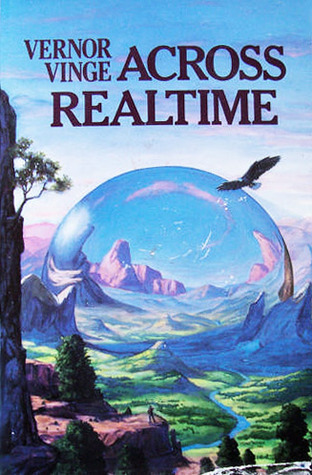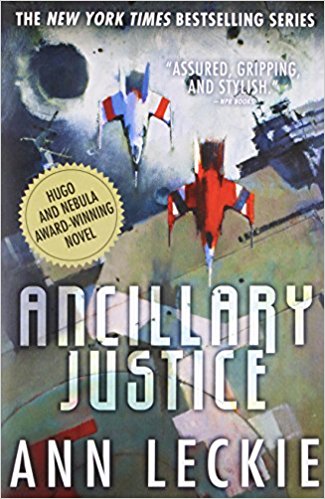By turning the little moments of downtime at work (and also lunch) into reading moments, I got through more books in 2018 than I ever have. I've blogged about books on occasion but with KnightDriver branching out in his blogs, I thought maybe I'd do the same. So first let's hit the novels I read last year.
I started the year with Robots and Empire by Isaac Asimov. Anything by Asimov is worth your time, though you ought to start with his first robot novel, The Caves of Steel, before reading this one. Next I read Ready Player One before the movie came out (which I never did watch) and it was fine. No Great Lit here but it's a fun story even if its nostagia is so heavy-handed. Those of you who like sci-fi and have not read Vernor Vinge are really missing out. Across Realtime is actually a collection of two connected novels. The first one, The Peace War, explores how an invention to create impenetrable stasis bubbles in space-time would affect the world, and the second, Marooned in Realtime, takes the idea to its logical end, wrapped in the guise of a murder mystery. Really, really good stuff.

Next I went through a string of classics, starting with 2001: A Space Odyssey, the first novel I've read by Arthur C. Clark. He really excels at describing the fantastic grandeur of space. I had intended to watch the movie after finishing the book but never got around to it. The Left Hand of Darkness was a choice to honor the passing of its author, Ursula K. Le Guin, and concerns the diplomatic mission of a man going to a planet where people do not have genders. Or perhaps I should say that both are possible and the people sort of turn to favor one naturally when they get with another person during "that time of the month," so to speak. (These are my clumsy words, not the book's.) Talk about thought-provoking literature! It also touched on the nature of patriotism vs. bigotry, something that is surprisingly apropos today coming from a book published in 1969. Then I hit something newer, the early cyberpunk novel Snow Crash, which got surprisingly deep with its concept of lingusitic viruses. Jumping back to 1962 I read Philip K. Dick's seminal alternate history novel The Man in the High Castle, an interesting look at what could have been if the Axis Powers had won WWII. And in typical Dick fashion it got pretty trippy and meta near the end without compromising what came before. (I detoured to read Deus Ex: Black Light, which I'd only recommend to big fans of the series, like me. It was good though.) And after years of putting it off for no good reason I finally read Lord of Light, which turns Buddhism into a sci-fi epic. It doesn't reach the heights of The Left Hand of Darkness but it is that same sort of thinking man's novel (it was published just two years earlier). There is really nothing quite like it.

Station Gehenna concerns an apparent suicide at a remote terraforming station on a dead planet. Or are there alien forces involved? Mystery ensues! Ancillary Justice is another standout for me. The great ships in this universe use wiped human bodies—ancillary units—for the ship's AI to use and get many things physically done at once. This revenge story follows a solitary ancillary unit after the rest of itself—the ship and other units—is destroyed. It's a really cool story, especially seeing how a fragment of a massive AI deals with what amounts to a human existence. Drastically switching gears, I read Guity Pleasures, the first Anita Blake book. I was worried early on because the opening felt very much like Twilight for adults (fifteen years before Twilight). So much vampire fetish estrogen! But then it pivoted into a supernatural PI procedural and I enjoyed it, though for me it scratches the same itch as Jim Butcher's Dresden Files and I prefer those (I need to get back to that series).

***This blog became so long that I split it in two. Check back tomorrow for the balance!***





 Have you read his Lucky Starr series? Those are such fun adventure stories.
Have you read his Lucky Starr series? Those are such fun adventure stories.
Comments